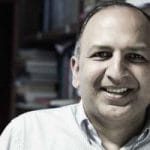 The Gogoi betrayal
The Gogoi betrayal
Pratap Bhanu Mehta | Contributing editor
The Indian Express
Mehta argues that by accepting the Rajya Sabha nomination, former CJI Ranjan Gogoi has not just cast doubt on his own judgment, character and probity but has dragged the entire judiciary with him. He states that the authority of the Supreme Court rests on the “cogency of its reasoning” and the integrity of its judges. Despite the fact that Gogoi himself had authored a judgment that post-retirement jobs could bring the judiciary into disrepute, his acceptance of the offer states that “the law will not protect you because it is a compromise and the judges will not empower you because they are diminished men”.
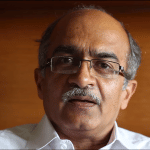 In Upper House nomination, a fall for ‘aloofness’
In Upper House nomination, a fall for ‘aloofness’
Prashant Bhushan | Public interest advocate, Supreme Court
The Hindu
Bhushan argues that the nomination of a former chief justice to Rajya Sabha is a blow to the ‘judiciary’s independence’. He states that Gogoi’s tenure as the Chief Justice was marked by a virtual collapse of independence, especially in light of the sexual harassment allegations against him, where he was the judge in his own cause. The ‘aloofness’ mentioned in the ‘Restatement of Values of Judicial Life’, the 16-point code of conduct for judges, seems to have been forgotten by judges. It raises serious doubts about the fairness of many critical judgments, Bhushan notes.
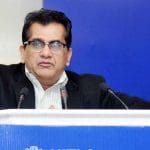
 What urban India can do to offset risks of Covid-19
What urban India can do to offset risks of Covid-19
Amitabh Kant | CEO, NITI Ayog
Richa Rashmi | Young Professional, NITI Ayog
Hindustan Times
The authors focus on the urban dimensions of the coronavirus pandemic and suggest the ways to tackle it. First, the water and sanitation authorities must ensure hygienic systems in the city to effectively combat the spread of the disease. Second, digital infrastructure needs to be strengthened to manage healthcare facilities. Third, data should be analysed to develop a comprehensive and robust system. Non-pharmaceutical interventions (NPI), communication with the community and rationing of healthcare systems can help avoid the worst-case scenario effectively, the authors state.
 COVID: Flattening the (economic cost) curve
COVID: Flattening the (economic cost) curve
Sajjid Chinoy | Chief India economist at J.P. Morgan
Business Standard
Chinoy points out that flattening the outbreak curve of COVID-19 will call for larger economic costs in terms of job losses, credit crunches, demand shocks, etc. He does say, however, that not addressing the outbreak will steepen the economic cost further. That said, the economic blow due to flattening the curve will have to be “cushion[ed]” by fiscal, monetary, regulatory policy, he writes.
 Twin crisis & the two third principle
Twin crisis & the two third principle
Dhiraj Nayyar | Chief economist, Vedanta
Financial Express
Like Chinoy, Nayyar also discusses the concept of flattening the curve when it comes to the spread of coronavirus in India. However, he additionally evokes the principle of staying ahead of the curve. Since the virus increases at an “exponential, not linear” pace, implementing social distancing earlier on is key, as shown by countries like South Korea and Singapore. “The economic and human costs for countries ahead of the curve are less than those for countries that take later stage measures,” he explains.
 A scientific temper is our best hope against a health disaster
A scientific temper is our best hope against a health disaster
Salil Tripathi | New-York based writer
Mint
Tripathi argues that “India needs data” in order to gauge the full scale of the COVID-19 infection and contain its spread. He explains that early detection through testing is key and “isolating and quarantining those who show signs of being infected will help slow the spread, and treating them early will return them to good health”. “Where the virus originated is not relevant,” he adds.
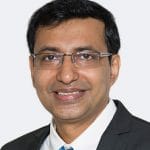 Search for greener pasture
Search for greener pasture
Ronojoy Sen | Senior Fellow, National University of Singapore
The Times of India
Sen argues that Jyotiraditya Scindia’s switch to the BJP can be interpreted in several ways. It can be seen as “rank opportunism” as well as joining a party with which his family had deep ideological ties. However, beyond this, Scindia’s joining also brings into focus the role of ideology in Indian politics. Given the ideological dominance of the BJP, switching parties will remain a popular pastime, the author states.
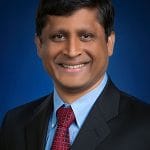 Let clear principles prevail in the bailout of Yes Bank
Let clear principles prevail in the bailout of Yes Bank
Amiyatosh Purnanandam | Michael Stark Professor of Finance, Ross School of Business, University of Michigan
Mint
Purnanandam points out three “fundamental principles of resolving bank failures” in view of the Yes Bank crisis in which “bondholders are already challenging the restructuring plan of the Reserve Bank of India in court”. These principles are honouring contracts, addressing market failure and protecting systemic stability.
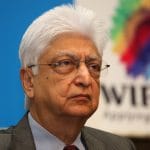 Get on top of the learning curve
Get on top of the learning curve
Azim Premji | Founder chairman, Wipro Ltd.
The Economic Times
Premji calls the draft National Education Policy “an excellent endeavour” by the Centre but points out that India needs to do more in ensuring “equitable inclusion of disadvantaged groups” and reforming regulations of higher education. India has seen “real progress” in the past 20 years with regard to improving education however, the final NEP “should not be a diluted version of the carefully formulated draft policy”, he concludes.



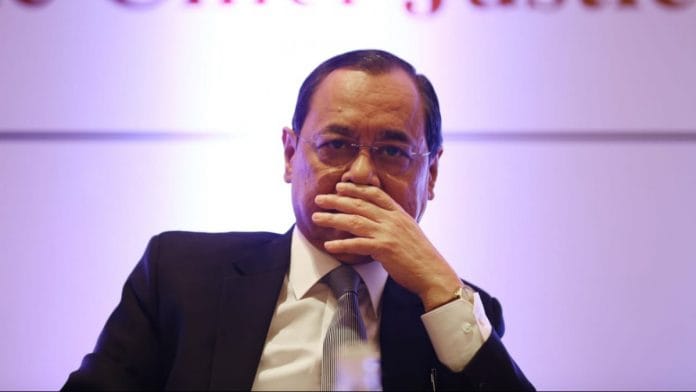



Prashant Bhushan has been an open supporter of the Congress and Nehru Gandhi dynasty for many years so nobody needs his opinion on a the neutrality of the court and the Chief Justice. He is only angry because Gogoi did not suck up to the Congress like he did and stayed neutral and professional while giving judgements.
This is with reference to the very uncharitable comments made by Prashant Bhushan and Pratap Bhanu Mehta and others on the ex CJI Mr Gogoi’s induction by the President of India into RS. Please remeber what Mr Gogoi said yesterday in his interview with Arnab on Republic TV. He said that there is a cartel of half a dozen people who try to dictate their terms to judiciary and want outcomes as per their own will and preference. If the judges do not give the verdict as per their liking they criticise and attack the judges outside the court. Even though Mr Gogoi didn’t name this cartel it is obvious that he was refering to the gang of Abhishek Manu Singhvi, Kapil Sibal, Prashant Bhushan, Indira Jaising, Dushyant Dave, Dhawan from the legal fraternity and ao alao the regular armchair critics of the judiciary like Pratap Bhanu Mehta, Harsh Mandar, Maoist supporter Gautam Navlakha, Anand Teltumbde, Sonia Loyalist Harsh Mandar and many others. These gangsters have a clear cut agenda. No verdict should go in favour of Modi or Hindus. Remember, in early 2019, Kapil Sibal had requested the SC to postpone the hearing on Ayodhya after 2019 elections fearing that a verdict in favour of Ram Mandir will swing votes in Modi’s favour. Ultimately the SC succumbed to Kapil Sibals threats and postponed the hearing. It is a different matter that Modi and BJP won even without the Ram Mandir issue being resolved. Even on CAA, triple talaq etc all these people are trying to spread lies amongst muslims that these laws are meant to cut down on their liberties and treat them like second class citizens. Nothing can be farther from truth. In fact these are plain lies. Gogoi was absolutely right in hitting out at this coterie. In fact during Shaheenbaug agitation Harsh Mandar is on camera saying that the muslims can’t depend on SC to help them in view of the Ayodhya verdict and that they have to hit the streets. Parties like Congress, AAP added further fuel to the fire which resulted in tragic loss of lives during Delhi riots. The media is also a well entrwnched part of this coterie. They all have one point agenda. To stop the rise of BJP, to divide Hindus and Muslims and somehow cobble up some combination and come back to power so that the loot of the state and the communalisation in society can be further deepened. Shame on these thugs.
On Justice Gogoi’s membership in RS :- Nothing new ! Earlier there was such elevation also! Difference is , He has been rewarded for his action in SC and reward came so fast and with so naked way !.Here , no question of ethics , morality or statesmanship!! It is “Sunazarer Selami” !! But,,, some big questions remains to be answered ! Has he done some thing great in SC ? NO!! His verdict , agree or disagree… divided the whole India . First, the NRC case in Assam.second, Rafael verdict, and the most important, Ram Janambhumi case.Whom he satisfied ? The ruling click only.I feel the people of Assam in particular and the people of India as a whole will remember his tenure as the ” black period” of our judiciary!!
Reading the opposition of P B MEHTA N PRASHANT BHUSHAN it is amply clear that JUSTICE GOGOI is exactly what INDIANS need. Only a genuinely good and effecient person will be so vilified
There are more takers of what P B MEHTA N PRASHANT BHUSHAN say, than what a nondescript like you say.
Yes, if vilifiers are vile